Next Generation Sequencing Bioinformatics
2–7 October 2022
Wellcome Genome Campus, UK
Essential informatics skills and knowledge to begin analysing next generation sequencing data
Summary
Summary
High throughput sequencing has gained widespread adoption as an essential experimental assay for biological research. Analysing high throughput sequencing data involves an array of different bioinformatics tools and techniques. Therefore, it is important for experimental scientists to have the bioinformatics skills required to effectively assess and analyse data produced by next generation sequencing.
This course aims to provide a hands-on introduction to bioinformatics for next generation sequencing and to equip participants with the essential informatics skills and knowledge required to begin analysing next generation sequencing data and carry out some of the most common types of analysis.
What will I learn?
The course programme will start with a history and overview of sequencing technologies and algorithmic theory and principles of bioinformatics, followed by intensive practical computational sessions using sequence analysis techniques and tools applicable to any species or genome size. A variety of applications will be covered from post-sequencing analysis (QC, alignment, assembly, variant calling) to RNA-Seq and data visualisation. Accompanying the lectures and practical sessions will be a series of seminars by invited speakers, who will highlight their cutting-edge work harnessing the power of next generation sequencing technologies to address a wide range of biological questions.
The course aims to provide a hands-on introduction to bioinformatics for next generation sequencing, and should not be considered a complete education in the theoretical and mathematical foundations of the topics.
*Please note: The practical sessions will be taught exclusively through Unix/Linux. Therefore, participants are required to have some familiarity with the Linux operating system. This will be essential for participants to fully benefit from the course. There are numerous online introductory tutorials to the UNIX/Linux operating system and command line, including:
http://www.ee.surrey.ac.uk/Teaching/Unix
http://swcarpentry.github.io/shell-novice/
Prerequisites
Applicants should be postdoctoral scientists, senior PhD students, junior faculty members or clinicians/healthcare professionals actively engaged in or soon to commence research involving next generation sequencing data analysis. The course will be taught in English.
Programme
The hands-on programme will cover several aspects of next generation sequencing data analysis, including lectures, discussions and practical computational sessions covering the following:
- Introduction to NGS technologies and tour of Sanger Institute facilities
- Introduction to the unix command line
- Advanced unix
- NGS data formats and tools
- Sequence alignment+QC
- SNP/indel theory and practical
- Structural variation theory and practical
- RNA-seq analysis
- ChiP-seq analysis
- Sequencing data visualisation with the Integrated Genomics Viewer
- Accessing public sequencing repositories
- Participant projects and presentations (final day)
Learning Outcomes
On completion of the course, participants can expect to have acquired:
- A working knowledge of the unix command-line and advanced unix commands for automating bioinformatics tasks
- Knowledge of how to do QC assessment of high throughput sequencing data
- Understanding of the algorithmic concepts behind short read alignment and variant calling, and practical experience using the software
- Experience analysing RNA-Seq and CHiP-seq data for measuring abundance
- Knowledge of the organisation and sequencing data types available in public sequencing repositories
Instructors and speakers
Course instructors
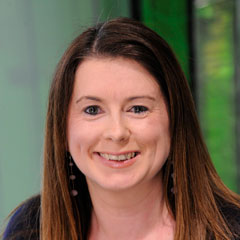
Jacqueline Keane
Wellcome Sanger Institute, UK
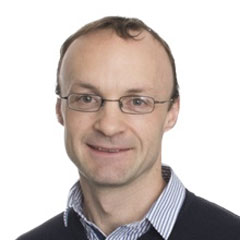
Thomas Keane
EMBL-EBI, UK
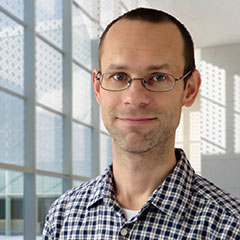
Petr Daněček
Wellcome Sanger Institute, UK
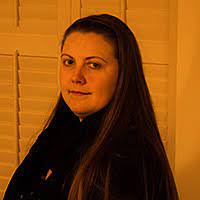
Victoria Offord
Wellcome Sanger Institute, UK
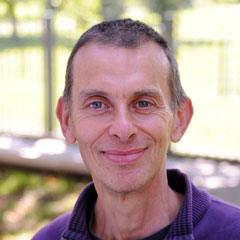
Michael Quail
Wellcome Sanger Institute, UK
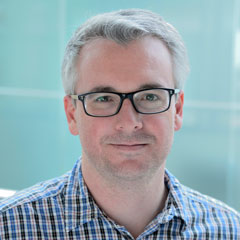
Shane McCarthy
Wellcome Sanger Institute, UK
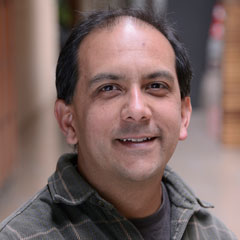
Vivek Iyer
Wellcome Sanger Institute, UK
Guest speakers
The course will feature research seminars from distinguished guest speakers. Speakers for the 2022 course will be announced shortly. Previous speakers have included:
Claire Jenkins Public Health England, UK
Frank Chan Friedrich Miescher Laboratory, Germany
Sofia Chen Wellcome Trust Sanger Institute, UK
Ximena Ibarra-Soria Cancer Research UK Cambridge Institute, UK
Registration
Please click the Apply button above to begin the online application process. Places are limited and will be awarded on merit. If you have any problems with the online application process, please contact us.
Please note: Applications must be supported by a recommendation from a scientific or clinical sponsor (e.g. supervisor, line manager or head of department). A request for a supporting statement will be sent to your nominated sponsor automatically during the application process. Applicants must ensure that their sponsor provides this supporting statement by the application deadline. Applications without a supporting statement cannot be considered.
Travel visas
Successful applicants will be provided with a support letter for their visa application, if required.
Please visit the following websites for further information on visiting the UK:
Cost
| Cost | Accommodation / meals | |
| *Course fee | £820 | This is a residential course and the fee includes all accommodation and meals. |
*The course fee is subsidised by Wellcome Genome Campus Advanced Courses and Scientific Conferences and applies to non-commercial applicants. Please contact us for the commercial fee.
Bursaries
Limited bursaries are available (up to 50% reduction on the course fee) and are awarded on merit. If you would like to apply for a bursary, please complete the bursary section of the online application form.
Where there are many bursary applications, the selection committee may issue smaller amounts.
Bursaries can be applied for as part of the course application form. Applicants will be notified of a bursary award along with their place on the course, usually within one month of the application deadline. The decision of the selection committee is final.
Please note that both the applicant and sponsor are required to provide a justification for the bursary as part of the application.
Additional funding opportunities
Visit our support page for additional financial support currently available.
Accommodation services phishing scam – please be vigilant. More information.
Testimonials
Feedback from the 2018 course:
“The course was superbly organised and very well delivered. A great balance between theory and practicals.”
“This course has been an amazing experience and I consider my participation a highly valued gift. The people I have met, the instructors and their warm, friendly, enthusiastic approach and brilliant performance has left me with inspiration for futher work with bioinformatics.”
“I really enjoyed the course, thoroughly enjoyable. The course exceeded my expectations. I found it very useful in terms of the command line and how to use bioinformatic tools to analyse my data. Jacqui & Thomas and all the instructors were very accessable and the activities the sessions were
very interactive and informative.”
“I would just like to say thank you for all the excellent teaching I received.”
“I have enjoyed the course and learnt a lot. It has really showed me how well such a course can be run and how much participants gain from this.”
“Thank you it was amazingly organized and executed!”

